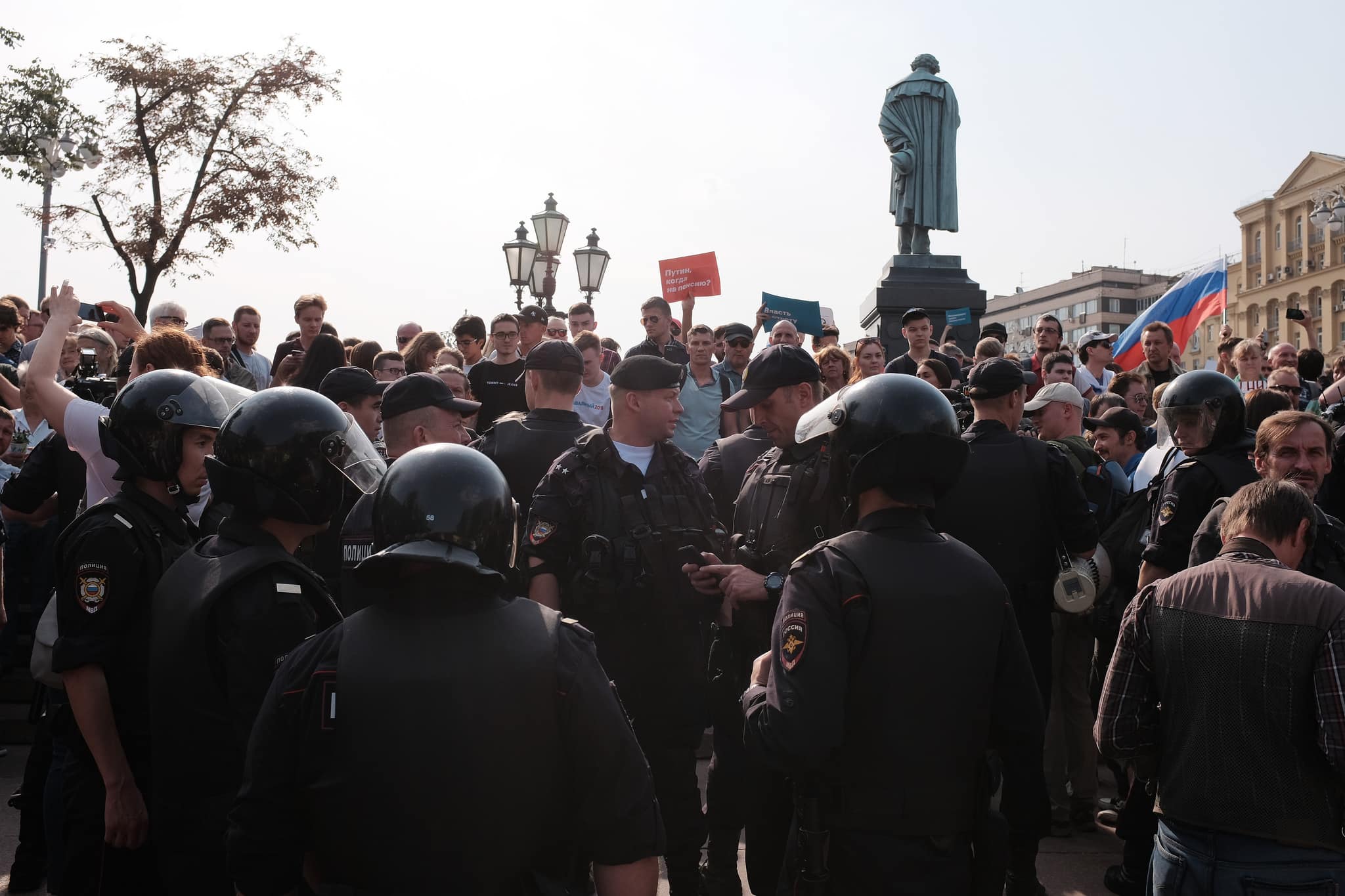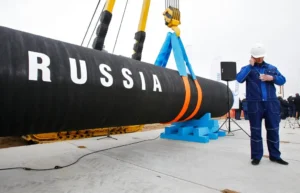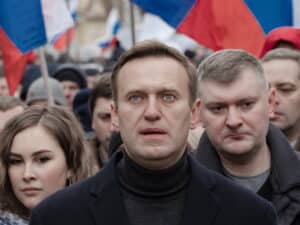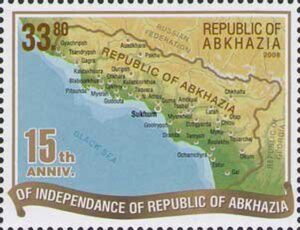In the past weeks, thousands of people have protested in different cities across Russia against the pension reform plans which President Vladimir Putin’s government announced, strategically, on the same day the Russian football team played and won the opening match at the World Cup, which was held in Russia. This meant that attention for it on the day itself was limited. The protests climaxed last Sunday, with nationwide rallies called for by opposition leader Alexey Navalny, who himself had been put in jail just two weeks beforehand.
The plan to raise the retirement ages, from 60 to 65 for men (by 2028) and from 55 to 63 for women (by 2034) caused angry reactions by both Putin’s electorate and his opponents. According to recent opinion polls by independent Levada Center 90% of Russian citizens is against the pension reform and 2.5 million of them had signed a petition asking the President not to go ahead with it.
Demonstrations followed in early July and continued through August and early September. Initially, the number of protesters was not overwhelming, due to the fact that most demonstrations were forbidden, but rallies continued, with protesters shouting slogans like ‘Putin is a thief’ and ‘Away with the tsar’. On September 9, the day of the largest protests, set to coincide with the regional elections, state police detained more than 1,000 people, of whom 452 in St Petersburg alone. As the elections were being held, protest rallies were organised in 33 cities.
When the results of the elections were announced a day later, it was clear that Putin and his party had suffered from the pension measures. Candidates from United Russia did not all succeed to secure their first round victory, having to face their challengers in a runoff. Putin claims that it is completely normal that a second round is needed, but it is the first time since 2007 that United Russia was defeated in three regional parliaments by the Communists.
Opposition
The opposition parties in Russia are united on this issue, which is rare in Russian politics. The team of Alexei Navalny, the most prominent opposition leader, is working together with the Communists, which is unique, but according to Michail Kasyanov, chairman of opposition party Parnas, people will understand that the opposition must be united to defend the pensions. On June 22, all of them accused the government of using the period in which the World Cup was held to announce and implement unpopular measures, such as raising the retirement ages, to divert attention.
Navalny, was taken into custody regarding an anti-government rally in January this year. The arrest came conveniently just weeks before his planned major rally against the pension reform on September 9th. His subsequent sentencing to 30 days in jail on August 27 meant that he could not be present at his own rally.
Softened measures
The pension age has not changed in 90 years, and Putin has pledged before that he did not intend to change it. After weeks of silence on the issue on his part he took responsibility for the measure for the first time on August 29 , claiming that it was born out of financial necessity. Russia deals with a slinking labour force and an aging population, while the state budget is low. Meanwhile, the price of oil, which is Russia’s main export product, has risen, but the country barely has any financial back-up following the global financial crisis. Moreover, the Russian economy is suffering from the European economic sanctions after the annexation of Crimea. After the enormous amount of criticism, Putin softened his stance on the pension policy in a televised speech on August 29. The retirement age for women will now become 60 instead of 63, but for men, nothing will change. In Western Europe, 65 is turning into a normal age for retirement, and in most cases it will slowly climb up to 67. For Russia, however, the circumstances are different, mainly because of the low life expectancy. According to the World Health Organization(WHO), life expectancy for women is 77, but for men it is only 66. In 33 of the 85 Russian regions, life expectancy is even below 65, which will mean most men there will not live long enough to retire.
Falling popularity ratings
The unpopular pension reform has also hit Putin’s personal popularity rate, which dropped from 79 percent in May to 67 percent in July, the lowest percentage in seven years. These lower popularity rates seem to not have gone unnoticed by the Kremlin. In an attempt to boost Putin’s image, on September 2, the same day that the new protests were announced, a Russian state channel, Rossiya-1, started broadcasting a weekly reality show called ‘Moscow. Kremlin. Putin.’ As the title suggests, the show is fully dedicated to Putin and paints a highly positive picture of the president, reminiscent of images evoked during personality cults built around Soviet leaders in the past.
Sources: Al-Jazeera Bloomberg, CBC, The Guardian, Reuters, Reuters, Reuters, Reuters, rferl,
Photo: Flickr



